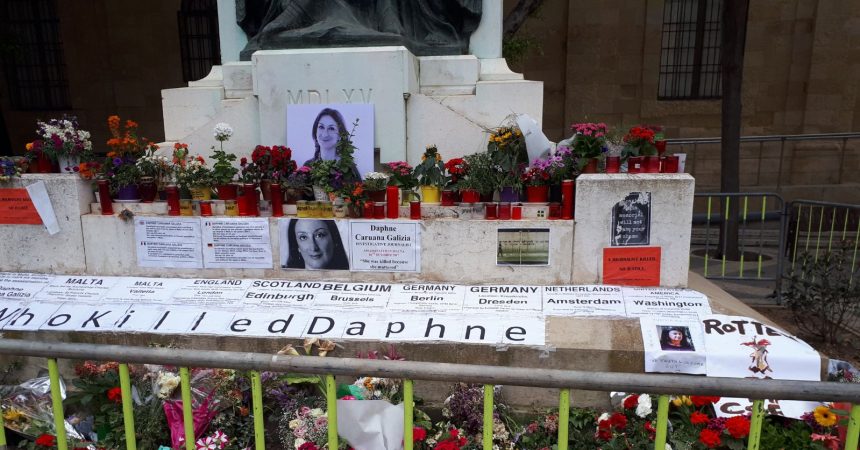The most significant human rights issues in Malta in 2017 included the killing of Daphne Caruana Galizia and alleged corruption at senior government levels, the US State Department said in its latest country report on human rights practices.
While noting that there were no reports that the Maltese government or its agents committed “arbitrary or unlawful killings,” the report said “unknown individuals” killed Caruana Galizia who the US State Department said “exposed major government corruption, including allegations involving the prime minister and other senior government officials.”
Her writing, the report said, targeted a wide range of individuals, including members of each political party, business leaders, judges, and other prominent individuals.
Pointing out that Caruana Galizia filed a report with police in early October alleging she had received death threats, the report said that at the time of her death, Caruana Galizia faced at least 40 libel suits because of her reports.
The report added that Caruana Galizia’s allegations that the prime minister’s wife was the beneficial owner of a Panamanian offshore account, led to the convening of a magisterial inquiry with Magistrate Aaron Bugeja appointed to the case.
Moreover, the report said that former opposition leader Simon Busuttil presented Bugeja with evidence allegedly showing that the prime minister’s chief of staff, Keith Schembri, had received kickbacks from the country’s golden visa programme.
“Documents from the Financial Intelligence Analysis Unit leaked to the media appeared to support these claims. Bugeja ruled there was sufficient evidence to open a separate inquiry and transferred the case to a second magistrate for further investigation,” the report said.
It added that Busuttil passed additional information to Bugeja concerning nearly 650,000 euros ($780,000) in transactions between Schembri and the former managing director of Allied Newspapers, Adrian Hillman. This led to a third magistrate opening another inquiry.
Busuttil also asked the courts to open an inquiry into purported information from the Panama Papers, with fresh allegations made against Muscat, Schembri and former energy minister Konrad Mizzi.
“Schembri immediately filed a criminal complaint against Busuttil, accusing him of “fabrications and calumny” and lying under oath. The duty magistrate at the time, Ian Farrugia, agreed that the prerequisites for an inquiry based on Busuttil’s allegations had been met. Muscat, Mizzi, and Schembri appealed the decision,” the report said.
Distorted media
The report said that international election observers considered the snap 2017 election to be free and fair but noted that in its final report on the elections, the Organization for Security and Cooperation in Europe’s election assessment mission concluded that ownership of a large part of the media by the two major parties , Labour and the PN, “had a restrictive effect on genuine debate, distorting editorial independence and contributed to partisan and recriminatory campaign coverage and skewing the playing field for contestants.”
The US State Department added that the assessment mission noted that, “while freedom of expression was respected, defamation and insult remained criminalised, and the courts were used to stifle critical coverage.”
Integration of migrants ‘slow’
On refugees and asylum seekers, the US State Department said that integration efforts “moved slowly” and migrants generally tended to stay close to residential centres, although some moved into the community.
It added that many migrants found work, mostly in low skilled sectors but asylum seekers also expressed concerns about access to higher education.
The report said that between January and September 2017, 146 persons were granted refugee status but few refugees were able to naturalise.
It added that while persons with refugee status may apply for reunification with family outside the country, those with temporary “subsidiary” protection – the majority of asylum seekers – are not.
“The government offered voluntary return assistance to failed asylum seekers, although such persons rarely accepted this offer. As of September, 12 migrants had sought assisted voluntary return,” the report said.












